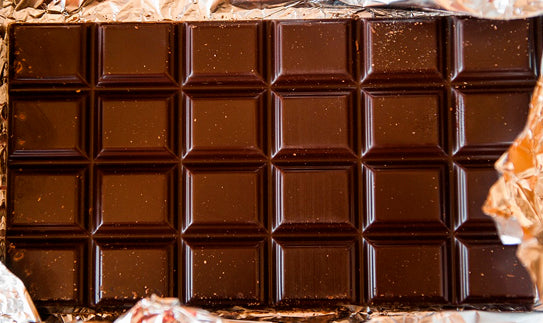
9 THINGS YOU SHOULD KNOW IF YOU HAVE HEAVY PERIODS
Heavy periods? Welcome to the club. Excessive menstrual bleeding is medically known as Menorrhagia, but to us it's just a nuisance. Given that there's no such thing as a normal period, what exactly constitutes as a heavy period? Medical folk define a heavy period as blood loss of 80ml or more each cycle - but hey, who's able to count mls when there's a ruby tsunami going on? Suffice to say, if you're soaking through high absorbency tampons or towels every two hours (or less), have periods that last more than 7 days, and even thinking about white trousers makes you break out in a cold sweat, then it sounds like you're a fully paid up member of the Menorrhagia gang. So here's a few things you might like to know…

1 Aaghh! A clot! Fear not, they might look yucky, but clots are usually nothing to worry about. When your womb lining sheds during a period, your body's anti-coagulants kick in to thin things down. But like the rest of us, they can only work so fast. If your period's heavy the poor old anti-coagulants can't keep up with the rate of the blood flow, which is why you end up getting dark red jam-like bits. Not a thing of joy by any standards, but all perfectly normal. That said, if you're consistently getting clots more than inch big, or they're pink or grey then get checked out as there might be something else going on.
2 Blame the hormones Those pesky hormones of ours have a lot to answer for because having heavy periods is often down to a plain old hormonal imbalance. At different times in our cycle our oestrogen and progesterone levels go up and down; which is what they're meant to do. But if the levels stay high - especially oestrogen - then the lining of the uterus can thicken and that results in heavy or painful periods. The good news is that there are ways to balance your hormones… we'll come to that later.

3 (Though it's sometimes an age thing…) Heavy bleeding isn't directly related to age, but there are times in our lives when we can be more prone to it - and again that comes down to those cheeky hormone blighters. Teenagers who have just started their periods, and women approaching the menopause are prime examples. And when we say 'approaching' the menopause, changes in your period can happen from your late thirties onwards. Which can come as a shock, especially if you've always been quite light.
4 Sudden change? Get it checked out. As well as hormone imbalances, heavy periods can be caused by fibroids (non-cancerous tumours in the womb), endometriosis (bits of the womb ending up elsewhere), pelvic inflammatory disease, thyroid issues, blood disorders and sometimes, cancer. If your period has suddenly changed - whether it's heavier bleeding, bleeding for longer, a change in cycle - then get it checked out, especially if the blood is orange or grey. The cause of most heavy bleeding is hormonal, but it's best talking to your GP if your period significantly changes.
5 Magnesium is your friend It's a clever thing is magnesium. It helps activate the enzymes which control our absorption of fats, glucose and carbs. Being low on magnesium is one of the reasons we crave sugary foods before our period, so making sure we're getting enough is one of our best defences against the hypnotic power of the chocolate aisle.

What's also pretty special about magnesium is that it also acts as a gentle muscle relaxant. This means it can help ease those strong contractions in your uterus - the very ones that cause cramps and heavy bleeding. So stock up on dark leafy veg. whole-grains, seeds and nuts. And chocolate. Yes, you did read that correctly, but it has to be the dark kind with at least 70% plus cocoa which is nice and rich in magnesium. As far as healthy eating goes, that one gets a huge tick from us. Magnesium rich foods:
- Spinach 157 milligrams(40% DV)
- Dark Chocolate 95 milligrams (24% DV)
- Almonds 80 milligrams(20% DV)
- Avocado 1 medium: 58 milligrams (15% DV)
- Banana (medium) 32 milligrams (8% DV) Source: draxe.com
6 Zzzzzz Wakey wakey! If you've found yourself dosing off during the day or feel tired even after a good night's sleep, your heavy periods might well be the culprit. The more blood you lose, the likelier it is for your haemoglobin levels to drop which can result in iron deficiency anaemia. Because haemoglobin is the stuff that carries oxygen around our bodies, even mild anaemia can leave us feeling pretty drained. More severe anaemia can cause breathlessness, dizziness and headaches. Not good. So let's get pumping that iron. The first place to start is your diet; red meat, poultry and seafood are great sources of iron. For us vegetarians and vegans we need to eat more pulses, leafy veg, dried fruit (especially apricots), peas and soya. Having a side helping of Vitamin C with your iron-rich food helps its absorption; a glass of orange or grapefruit juice, a portion of broccoli, tomatoes or peppers will do wonders. 
Think you might be anaemic? Your GP or practice nurse can do a simple blood test. If you are, you'll probably be prescribed a course of ferrous sulphate (iron tablets) to get your levels back to normal. It's best not to self-medicate with iron supplements, as an excess of iron brings its own problems.
7 Be like Bridget We owe it to ourselves not to let heavy periods interfere with our lives. So, if your periods are heavy (or anything else that's annoying) then keep a period diary. Okay, so it's not going to be as riveting a read as Bridget Jones's, but it will help to flag up anything that might warrant further investigation. Make a note of when your period starts, when it finishes, any pain, how many tampons or pads (or both) you're going through and how often you're flooding through them. If you have all your info to hand when you see your GP, it'll be much easier for them to work out what might be going on.And lots of women swear by period apps as the new way to keep on track. 8
There's no need to worry about toilet terrors When your period's at its heaviest a trip to the loo can feel like something out of a scene from CSI. For us heavy-flowers it's not uncommon for even a super-absorbent tampon to only last until we've come out the loo and gone downstairs. Repeatedly flushing a never-ending stream of tampons or towels down the toilets is a blocked pipe catastrophe waiting to happen. The horror show that is a blockage is stomach churning - and that's even before the plumber's bill. If you're already a Winner, er I mean Binner, then you'll often find yourself using up half a tree in loo roll which does fill that bin up quickly - presuming of course there is one…..So praise be to FabLittleBag, the best way - ever - to dispose of any sanitary gubbins. Bag it, Seal it, Bin it. (P.S. it's biodegradable). Because they come in handbag packs too, they're an absolute must when you're out and about. Never again will you face the fear of wondering just how effective the flush is in someone else's loo and if you can get away with it… (oh yes, we've all been there.) 
9 Take control - there are options… When you're used to having to carry around your body weight in tampons a few days each month, it's easy to get into the habit of just dealing with it. We women are masters at that. But if you're having to plan any trip out with military precision so that you don't leak between one toilet and the next, or have to wear over-bum jumpers in the height of summer, then it's high time to show your period who's boss. Thanks to the wonders of medicine there are treatments which do actually work. The Mirena Coil (IUS) A small plastic device that's inserted into your womb. It's essentially a contraceptive, but it's slowly release of the hormone, progesterone can reduce bleeding by up to 90%. (Source: NHS) Combined Oral Contraceptive Pill Or, as it's better known: The Pill. It can help regulate your cycle and reduce heavy bleeding - roughly by 40%.(Source: NHS) Tranexamic Acid (Cyklokapron) These tablets work by breaking down blood clots, which in turn helps to prevent prolonged bleeding. It's reckoned they can reduce blood loss of up to around 50%. (Source: NHS) NSAIDs (Non-Steroidal Anti-Inflammatory drugs) Ibruprofen, Mefenamic Acid and Naproxen all belong to this family of drugs. They can reduce blood flow from around 20-50%.
(Source: NHS) 
Oral Norethisterone or Injected Progestogen This man-made progestogen preventsyour womb lining growing so quickly. It can reduce heavy bleeding bymore than80%. (Source: NHS) Uterine artery embolisation (UAE) If your heavy periods are caused by fibroids (non-cancerous growths in the womb) this procedure can be used to shrink themand usually involves an overnight hospital stay. Myomectomy A surgical procedure to remove fibroids. Though it's not suitable for every type of fibroid. Endometrial Ablation This is where the womb lining is destroyed via one of two ways: a probe that uses microwave energy or a heated balloon that's inserted into your womb. Both procedures are carried out under a local anesthetic. Hysterectomy Gulp. This is the most drastic of all the options. A hysterectomy is when the womb is removed, so after it's done you won't be able to have children, plus there's also a long recovery time afterwards so for most women it's only considered as a last resort. Getting by There's nothing shameful about having very heavy periods. If we were more open about the subject, chances are we'd come across many other heavy flow sisters. You are definitely not alone. If you find dealing with a mountain of soaking sanitary products a challenge, you'll be glad to discover FabLittleBag: the best disposal method, period. These opaque, leak-free bags seal away used tampons and pads, problem sorted. They'rea godsend if you're out and about and find yourself without a bin, or just to prevent the bathroom bin looking like a murder scene. If you're already struggling with a heavy period, here is something that can make the whole process much less of a challenge. Trying is believing, why not give it a go? Buy FablittleBag Sanitary Disposal Bags on Amazon here! Watch our revealing interview with Gynae Geek, aka gynaecologist Dr Anita Mitra, as she explains what's normal, what's not and how to get the help you need for heavy periods. https://www.youtube.com/watch?v=_Adgu1ao5fs&t=532s
